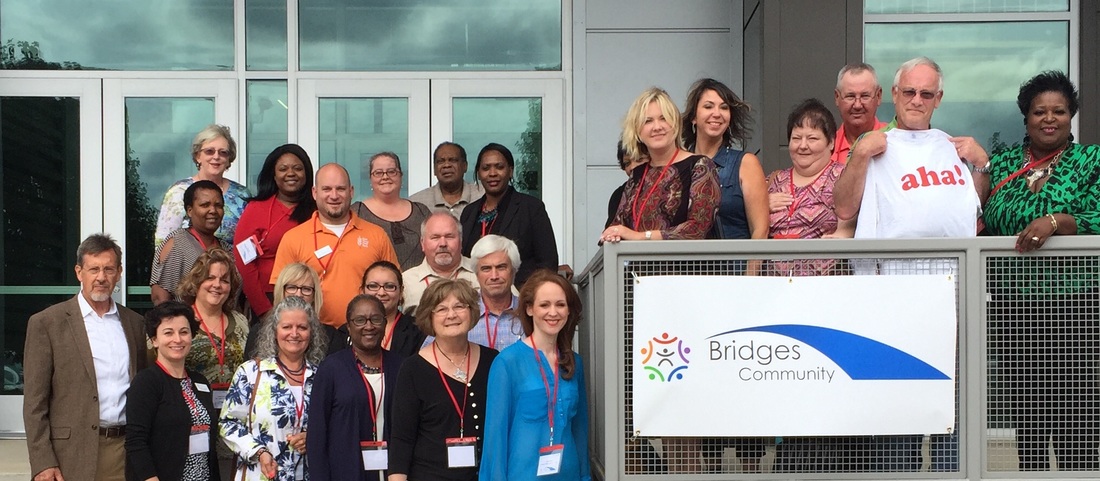A Framework for Understanding Poverty is for anyone teaching adults, youth and families. Teachers can be classroom teachers, but also Sunday School teachers, ministers, youth leaders, group leaders, in home trainers, service providers and anyone involved in employee training.
Participants will develop an understanding of the impact of generational poverty on a learner. The participants will come away from the workshop with tools and strategies that are necessary for helping a learner from poverty learn the subject matter as well as the Hidden Rules of Middle Class and thus escape the cycle of poverty.
Participants will develop an understanding of the impact of generational poverty on a learner. The participants will come away from the workshop with tools and strategies that are necessary for helping a learner from poverty learn the subject matter as well as the Hidden Rules of Middle Class and thus escape the cycle of poverty.
When viewed through an economic lens, poverty can be defined as an absence of resources. Since 1995, Framework’s basic premise is that the middle-class understandings of those who work with children and adults in poverty are often ill-suited for connecting with and helping people build up resources and rise out of poverty.
Now, 18 years and 1.5 million copies later, Framework has evolved into a comprehensive and coordinated network of publications, training, programs, and support (see front pages for a listing of related publications and resources) that encompass the key intersections of people in poverty with those who serve them, including:
– Educators—from preschool to postsecondary
– Social workers, healthcare workers, law enforcement, and judicial systems
– Employers and business leaders
– Communities of all sizes, including municipal and faith communities
– Individuals, parents, and intergenerational families
This revised, updated, and expanded 5th edition of Framework: A Cognitive Approach features an enhanced chapter on instruction and achievement; greater emphasis on the thinking, communication, and learning patterns involved in breaking out of poverty; plentiful citations, case studies, and data; more detailed findings about interventions, resources, and causes of poverty; and a review of the outlook for people in poverty—and those who work with them.
“The beauty and power of Framework are its scope and breadth. What began as a guide for educators to better understand their students is now a multifaceted, multidisciplinary set of tools and resources that are applicable across society. The book expands the integration of relationships across all boundaries.”
Gayle C. Manchin
Past President, National Association of State Boards of Education (NASBE)
“Framework is our staff’s most powerful resource for working with students and families to provide necessary tools and skill sets to break the crushing cycle of poverty.”
Dr. Bonny Cain
Superintendent, Waco Independent School District, Texas
Now, 18 years and 1.5 million copies later, Framework has evolved into a comprehensive and coordinated network of publications, training, programs, and support (see front pages for a listing of related publications and resources) that encompass the key intersections of people in poverty with those who serve them, including:
– Educators—from preschool to postsecondary
– Social workers, healthcare workers, law enforcement, and judicial systems
– Employers and business leaders
– Communities of all sizes, including municipal and faith communities
– Individuals, parents, and intergenerational families
This revised, updated, and expanded 5th edition of Framework: A Cognitive Approach features an enhanced chapter on instruction and achievement; greater emphasis on the thinking, communication, and learning patterns involved in breaking out of poverty; plentiful citations, case studies, and data; more detailed findings about interventions, resources, and causes of poverty; and a review of the outlook for people in poverty—and those who work with them.
“The beauty and power of Framework are its scope and breadth. What began as a guide for educators to better understand their students is now a multifaceted, multidisciplinary set of tools and resources that are applicable across society. The book expands the integration of relationships across all boundaries.”
Gayle C. Manchin
Past President, National Association of State Boards of Education (NASBE)
“Framework is our staff’s most powerful resource for working with students and families to provide necessary tools and skill sets to break the crushing cycle of poverty.”
Dr. Bonny Cain
Superintendent, Waco Independent School District, Texas


